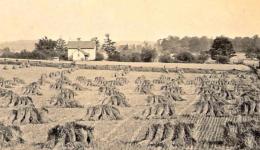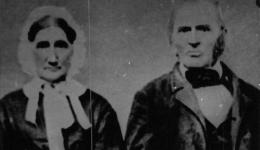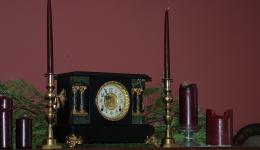Category:
Thought I might comment on my last name - BARBER . . .
The Greek name for a barber was κουρεύς. The Latin, tonsor, comes from the low Latin barbatorius. In Latin, a beard was a barb. The term is close to barbar, but the latter means 'foreign.'
A barber was formerly a very important person. People didn't have all the stuff we have now: combs, mirrors, perfumes, and tools for clipping, cutting, and shaving and so everything related was performed at the barber's, unless one had a slave who attended to these duties. The barber's 'shop' was a place of daily retreat and gossip. An ancient tonsor did other things as well. He pared nails, extracted teeth as well as cut hair.
In some Greek and Roman times, Irregularity and unevenness of the hair was considered a great blemish, as were grey hairs (plucked out by hangers-on of important personages). Bears were shaved and hails were pared.
In medieval times the barber-surgeons formed their own guilds, as in the 16th to 18th century in London, where barbers and surgeons were in the same guild, known as the Company of Barber-Surgeons. Oxford University medical historian Margaret Pelling notes that the barber-surgeons were effectively the General Practitioners of their day.
They were the accessible surgeons who amputated limbs and pulled teeth when necessary. The barber pole retains the idea of healing (blue), bandaging (white) and bleeding (red), the latter a practice till quite recent times. A barber-surgeon would be found on battle fields as well as in cities and villages. They were the closest to medical care that most people, if even then, were likely to receive. The medical part has, of course, died away, but the attending care of hair and beard continues.
See more.







